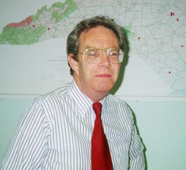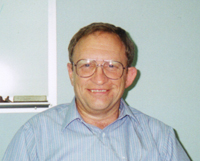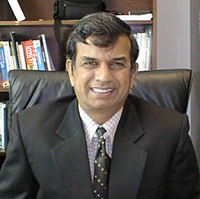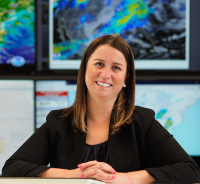Office History
The Office of the State Climatologist for North Carolina was established within the University of North Carolina system in 1976. Until 1973 there had been a similar federal program within the National Weather Service (NWS). When that program was disbanded, each state government was asked to support a state climatologist at the local level to provide the services eliminated by the NWS. The North Carolina State Climate Office (NCSCO) was formally established by a joint agreement between the President of the University of North Carolina system and the Director of NOAA’s National Climatic Data Center.

Dr. Peter Robinson (1976 – 1980)
In 1976, the NCSCO was opened in the Department of Geography at UNC-Chapel Hill with Dr. Peter Robinson as the first State Climatologist. In those days most data requests were in the form of telephone calls or letters, with the requested data being photocopied and mailed or simply dictated over the phone. Many of the requests, reflecting the old federal program’s close connection with agriculture, came from agribusiness. There was also, from the start, close cooperation between Universities, with the State Climatologist sitting on various extension and research committees at NC State University.

Dr. Jerry Davis (1980 – 1996)
In 1980, through a Memorandum of Agreement, the NCSCO was moved to the Department of Marine, Earth, and Atmospheric Sciences at North Carolina State University. Dr. Jerry Davis, Professor of Atmospheric Sciences, was appointed as State Climatologist and served in this role for the next 16 years. Over this period the NCSCO research addressed issues such as precipitation variability and definition of local climates.

Dr. Sethu Raman (1996 – 2006)
In 1996, Dr. Sethu Raman, Professor of Atmospheric and Marine Sciences, was appointed State Climatologist. That year, the NCSCO was moved to NC State University’s Centennial Campus and co-located with the National Weather Service. Dr. Raman worked to expand the presence and visibility of the NCSCO, including developing a long-term vision and building a permanent infrastructure of staff and facilities. In 1997, the NCSCO took over responsibility for the Agricultural Weather Network as part of an agreement with NC State Universities College of Agriculture and Life Sciences and the North Carolina Agricultural Research Service. In 1998, the NCSCO was designated as a Public Service Center in the University of North Carolina (UNC) system by the UNC Board of Governors and housed in the College of Physical and Mathematical Sciences. Sethu retired as State Climatologist in July 2006.

Dr. Ryan Boyles (2006 – 2016)
Dr. Ryan Boyles was named as State Climatologist and Director of the State Climate Office in 2006. Dr. Boyles began working with the NCSCO in 1997 and was one of the first graduate students to work with Dr. Sethu Raman in the NCSCO. Dr. Boyles continued the successful program started under Dr. Raman with an emphasis on the NCSCO’s public service mission for climate science extension, research, and education. In 2016, Ryan left the NCSCO and joined the USGS Southeast Climate Science Center.

Dr. Kathie Dello (2019 – 2025)
In 2019, Dr. Kathie Dello was hired as the state climatologist of North Carolina and the director of the State Climate Office. She was the 5th permanent director and first woman to hold this position.
Previously, Dr. Dello was the associate director of the Oregon Climate Change Research Institute and the deputy director of the Oregon Climate Service for almost 10 years. At Oregon State University, Dr. Dello led and participated in numerous state climate assessments, outreach, engagement, and research. She has a Ph.D. in Environmental Sciences from Oregon State University, and a Master’s in Geography and a Bachelor’s in Atmospheric Science from the State University of New York at Albany.
In 2025, Kathie left the NCSCO and joined the North Carolina Department of Environmental Quality
Today, the North Carolina State Climate Office is one of the most active offices in the nation, and was acknowledged by the American Association of State Climatologists as one of the first officially recognized State Climate Offices. The NCSCO is actively pursuing a wide range of research, monitoring, and educational activities to support North Carolinians through improving our understanding of the complex interactions between North Carolina’s weather, climate, the environment, and people.